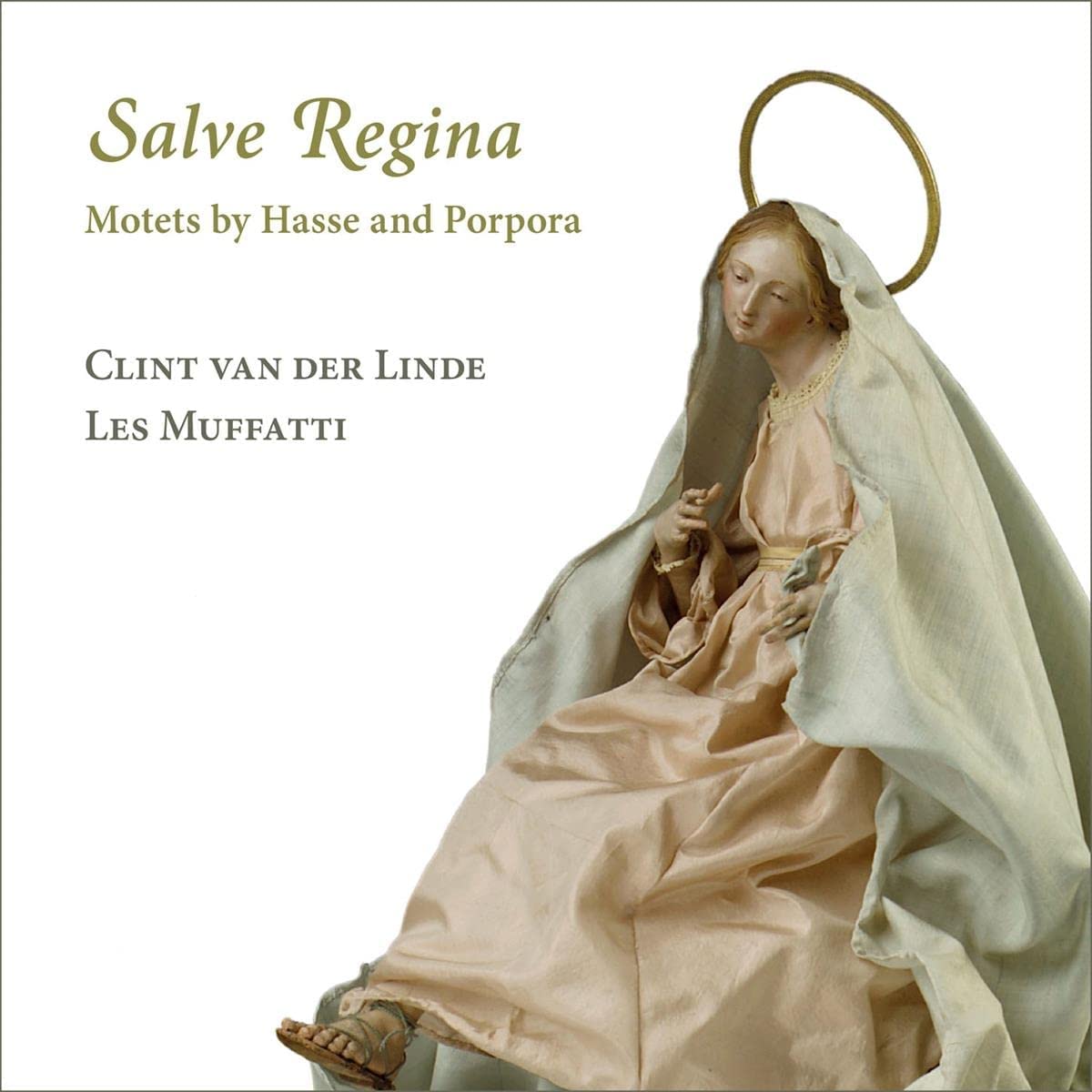Motets by Hasse and Porpora
Clint van der Linde, Les Muffatti
69:07
Ramée RAM 2012
[Click HERE to buy this on amazon.co.uk. These subsidised links do not bring in a lot of money, but they do keep the site online and FREE!]
Loosely based around a ‘grand tour’, undertaken and recorded in a diary between 1713 and 1715 by one Corneille-Jean-Marie van den Branden, an aristocratic Netherlander, this collection of Neapolitan and Venetian music is of particular value for including first recordings of motets by Hasse and Porpora. Porpora’s Nisi Dominus is indeed housed in a collection in the archiepiscopal archives in Mechelen that has been linked to van Branden, having been presented by him to cathedral there. Scored for solo alto and strings, it must therefore be an early work. There are five movements, the second of which, ‘Vanum est vobis’ has an elaborate violin solo, while ‘Gloria patri’ springs a surprise by unexpectedly changing metre to triple time to carry the motet to a brightly exuberant peroration.
Of greater interest is the other first recording, a setting by Hasse of highly dramatic verses, Hostes averni (‘Foes roaring with infernal rage’), again set for solo alto and strings. The extensive opening aria reflects the text, a surging, driving movement with bravura writing for the singer underpinned by fierce scalic passage work for the orchestra. An intense accompagnato follows, this quasi-operatic motet concluding with a totally contrasted aria (‘Blanda in prata’) typical of the mellifluous sweetness that earned Hasse the soubriquet ‘il divino Sassone‘ in Italy. In addition to the premieres, Porpora is at his most beguiling in a Salve Regina (the opening is pure ecstatic balm), while Hasse’s Alma Redemptoris Mater attempts successfully in its ability to seduce the senses. Finally, to return to the Branden connection, there are two of Vivaldi’s brief string concertos, RV 154 in G minor and RV 136 in F. The traveller records being taken by Vivaldi to a concert at the Pietà.
The programme, then, is an interesting one, the performances regrettably less so. Clint van der Linde is a South African countertenor whose tone is generally pleasing, though upper notes have a tendency to be a bit hooty and intonation is not always completely secure. Where however he is ill-equipped for these works is the lack of technique to do full justice to works composed for virtuoso castrati. While passaggi are capably sung and cantabile lines nicely sustained, ornaments in general are poorly articulated and there is no trill, an absolutely essential piece of technical equipment in this music if it is to make its full effect. Perhaps most damagingly of all, van der Linde’s diction is so poor as to at times give the impression that he is singing vocalises. This lack of projection and clarity is critical in music that oozes the fervour and theatricality of the counter-Reformation from every pore. The neatly turned orchestral playing both in accompanying the motets and in the concertos is of a high standard, but in serious need of a shot of Mediterranean brilliance and colour. It reminds me of what we thought of as stylish Baroque playing before the best Italian groups wrested back their repertoire from northern Europeans.
In sum, if you mainly enjoy your music as background or in car the disc will make for a pleasing experience; if you look for something that probes more deeply then it may not be for you. But van den Branden’s travel diaries sound fascinating, a kind of Dutch Burney avant la lettre.
Brian Robins
